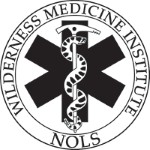23% of EMS calls alcohol-related
Brown Daily Herald - Campus News
By Ben Leubsdorf
Members of Brown Emergency Medical Services once found a girl passed out with her head in a toilet. Her face was less than an inch from the vomit-filled water. If her shoulders had been a little narrower, or the toilet bowl a little wider, she would have drowned.
"We've had a lot of close calls," said Richard Lapierre, manager of Emergency Medical Services. But to his knowledge there have been no alcohol-related deaths at Brown.
That wouldn't be the case without Brown EMS.
Brown EMS was founded in 1978, and provides advanced life support service and a single ambulance to the Brown community. It has a paid staff of five supervisors, as well as 120 student volunteers, working three daily shifts in the morning, afternoon and night, according to Lapierre.
That's a sizable investment for a university, according to Lapierre, who said most schools do not invest in a full-time, year-round service with paid staff as well as students. The University of Rhode Island, for example, has an entirely student-run, part-time program.
In the 2003-2004 school year, EMS responded to 770 calls, according to Lapierre. Sixty-eight percent of those runs were for undergraduates, 5 percent for graduate students, 7 percent for faculty and staff and the remainder for persons either otherwise affiliated with Brown or not affiliated with the University. Eight percent were for participants in Brown's summer programs, a "steadily increasing" number, Lapierre said.
The program depends on its student volunteers, said Lapierre, who described them as "a very, very dedicated group of individuals. ... I think they're very much an unsung resource at Brown University." He praised their responsibility, nonjudgmental attitude and dedication to what "is not the most pleasant job" on campus, working five to seven hours a week without pay.
According to Nick Mark '06, a student Emergency Medical Technician, about two-thirds of the student volunteers are certified EMTs, and a smaller number have advanced cardiac certification. There is always a paid supervisor with cardiac or paramedic certification on duty, as well as at least one student with EMT certification.
Having paid supervisors "is a really great system. ... You get to learn a lot (from the supervisors) and it means the quality of care is better," Mark said.
Mark worked the 6 p.m. to 8 a.m. night shift with Erin Kelly '07 last Friday. Both are pre-medical students and EMT-Cardiacs. Their high certifications make them what Mark jokingly called the "A-Team" of EMTs, on duty for an especially difficult shift.
"It's a good shift. It's a busy shift," Kelly said.
"Generally the end of the week is much busier," Mark said, due to what is probably Brown EMS's most visible work: responding to alcohol-related incidents.
According to Lapierre, alcohol and substance abuse are "the largest single cause of EMS calls," making up 23 percent of all calls last year for a total of 180 runs. One hundred sixty-eight were alcohol related, two were related to other substances and 10 were caused by the combination of alcohol and drugs.
But "it's not just babysitting drunks," Mark said.
"Our bread and butter," he said, are sports injuries, falls, chronic illnesses, diabetic emergencies, people feeling sick, major trauma and occasional cardiac emergencies.
"If kegs come back to campus, yeah, we're going to have a problem," Lapierre said of the proposed Undergraduate Council of Students initiative to lift the ban on kegs.
While statistics by year of graduation are not kept, based on his 10 years on the job, Lapierre said "a large percentage of your alcohol calls, the majority, are freshmen."
He added: "I don't think seniors drink any less than freshmen. But they learn to handle it better."
Mark agreed, noting that very few students are treated more than once for alcohol poisoning. "It's a learning curve thing," he said.
The weekends of SexPowerGod, Starf*ck and Spring Weekend are the busiest times of the year for EMS, Lapierre said. Mark said he was on duty last Halloween and got 18 calls that night. He said that the number of calls during Spring Weekend can reach 20 per night.
Health Services is aware that those times will be busy and plans accordingly, Lapierre said.
When Brown EMS cannot respond to several simultaneous calls, Providence authorities pick up the slack, Mark said, though they charge students for the service. The Brown EMS service is free. Mark said EMS is considering purchasing a second ambulance to help cover busy nights.
"It's on the wish list," Kelly said.
Lapierre praised the University for its alcohol education work: "We are more proactive than any other education institution I am aware of," he said. "I th

